Yogurt is a fantastic snack for kids of all ages. It’s high in protein, loaded with probiotics, and a great source of vitamin D and calcium. Also, it can usually be disguised as a sweet treat. 🙂
But just like many other kid’s snacks, yogurts are often marketed as “healthy” with nothing to back it up. The common claims are “no high fructose corn syrup”, “made with real fruit”, or “low fat”.
But what do we really want out of our kid’s yogurt? What should we be looking for on the nutrition label that categorizes yogurt as “healthy”?
So let’s first review what criteria to look for in yogurt, then we can talk about some brands that pass all the tests!
What makes a yogurt healthy for kids?
Protein-to-sugar ratio
Just like we reviewed in the dietitian-approved granola bars blog post, we want to follow the same rule regarding protein and sugar. We want the added sugars to be no more than 2x the amount of protein. For example, if the added sugars are 10g, the protein needs to be 5g or higher. This makes sure that the quick energy of sugar is balanced by the longer-lasting energy from the protein.
Full fat
Contrary to what you might think, we want kid’s yogurt to be full-fat. Having sources of full-fat dairy helps kids to better absorb fat-soluble vitamins like vitamins A, D, E, and K. Also, full fat means that kids will stay fuller for longer – which is a great bonus in a snack.
Good source of calcium and vitamin D
Most yogurts are naturally a good source of calcium and some have vitamin D added, so we want to look at “10-20% daily needs” for calcium, and any added vitamin D we can get! Calcium is not only good for bone health but is necessary for muscle and heart health as well. Vitamin D also supports healthy bones, as well as promotes a strong immune system.
A small note on yogurt pouches
Most kid’s yogurt comes in the squeezable pouches that we all know and love. Don’t get me wrong – they are extremely convenient, travel-friendly, and mess-free.
However, when kids, especially toddlers learning how to eat, are exclusively fed these pouches, it can delay the development of oral motor skills needed to chew and swallow foods.
Basically, the lack of texture leads to minimal oral motor skills used while eating. So if snacks like this are offered without any alternative textures, they will not be challenged enough early on to develop the oral skills they need.
To promote healthy motor skills for feeding, balance the pouch-style snacks with other textures and feeding methods (utensil-fed and hand-fed).
Click here to learn more about when and how to introduce yogurt to toddlers.
So let’s get into the yogurt brands! I have separated the brands into “best”, “better” and “limit” categories.

This is to hopefully get the message across that there are no “bad” choices when buying a snack for your child. No parent shaming here. 🙂

Plain yogurt + mashed fruit OR honey
You can’t really go wrong with the brand, but some of my favorites are Chobani, Stonyfield, and Siggis.
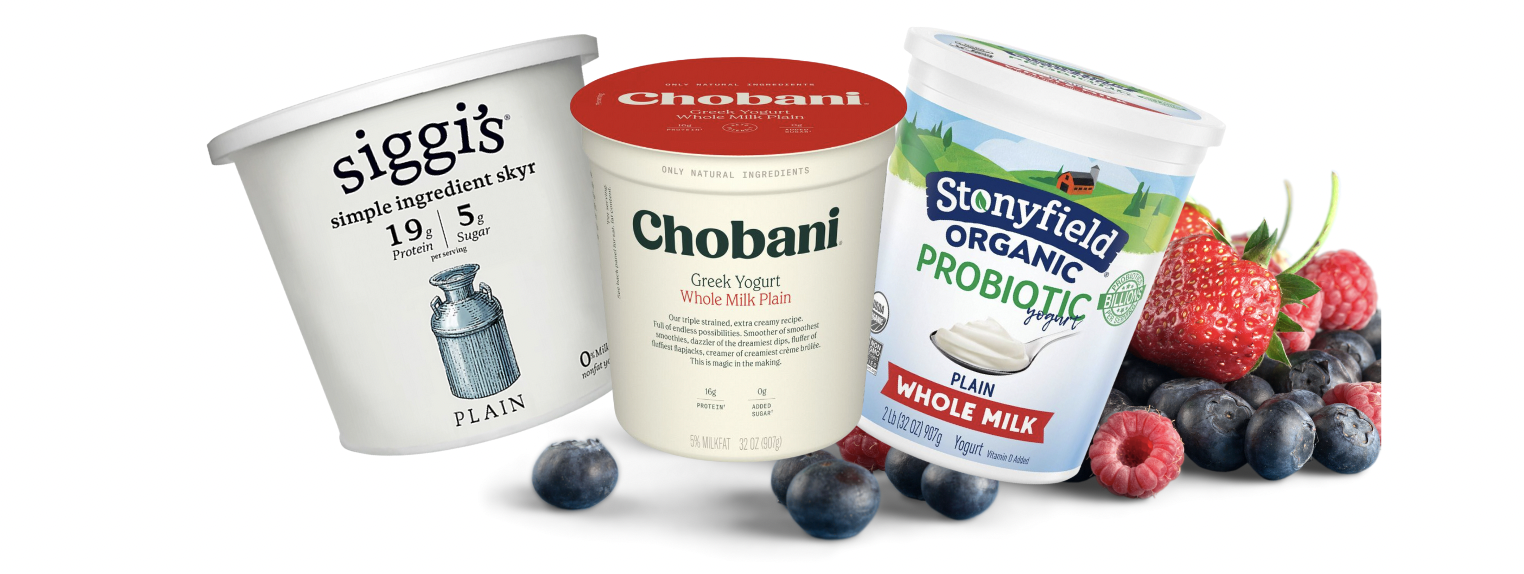
Pros
- The best protein-to-sugar ratio out there! 6-10g of protein and 0g of added sugar
- Highest vitamin D and calcium
- Versatile in many sweet and savory recipes
- Gives kids practice eating with utensils
- Normalizes more tart flavors for kids
Cons
- Less naturally sweet

Siggis Pouches
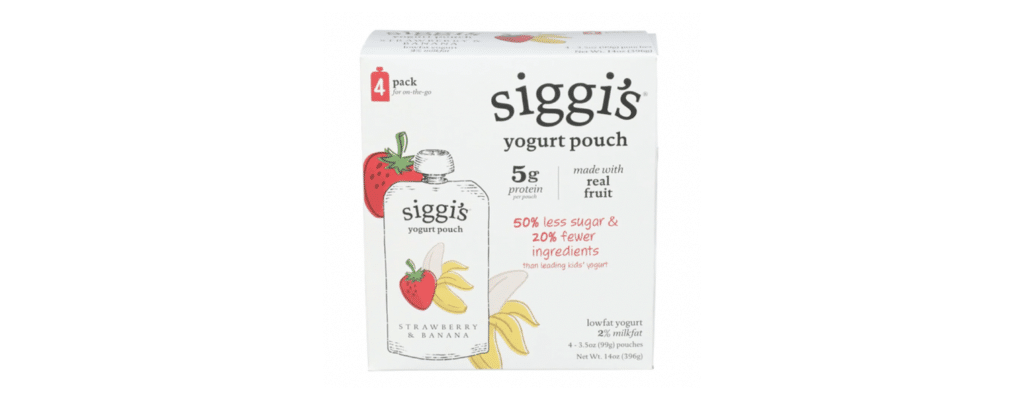
Pros
- 10% of daily calcium
- GREAT protein-to-sugar ratio – 5g of protein and 4g of sugar!
- Simple ingredients
- Live active cultures (probiotics!)
Cons
- Low flavor options
- No added vitamin D
- Not full fat – made from 2% milk
Stonyfield Organic Yogurt Cups with Real Fruit
 Pros
Pros
- Good protein-to-sugar ratio – 6g sugar 4 g protein
- Gives kids practice eating with utensils
- Live active cultures (probiotics!)
- Added Vitamin D
- Full fat
- Made with real fruit purees
Cons
- Lower in calories – Might need to be paired with something else for a snack
Stonyfield Organic Yogurt Pouches
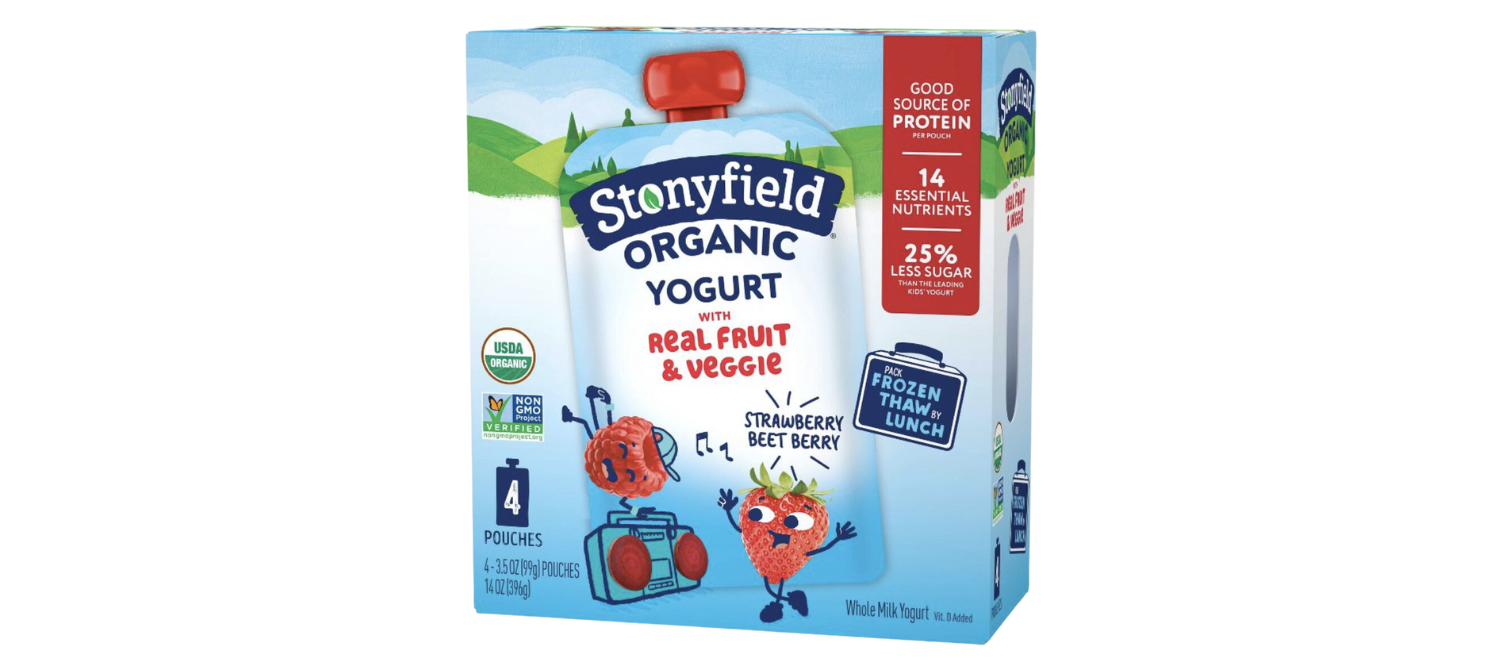
Pros
- Good protein-to-sugar ratio – 4g sugar 5g protein
- Live active cultures (probiotics!)
- Full fat
- Made with real fruit purees
- Added Vitamin D
- Portable pouches
Cons
- Does not give kids practice for oral motor skills or using utensils
Horizon Organic Growing Years Pouches
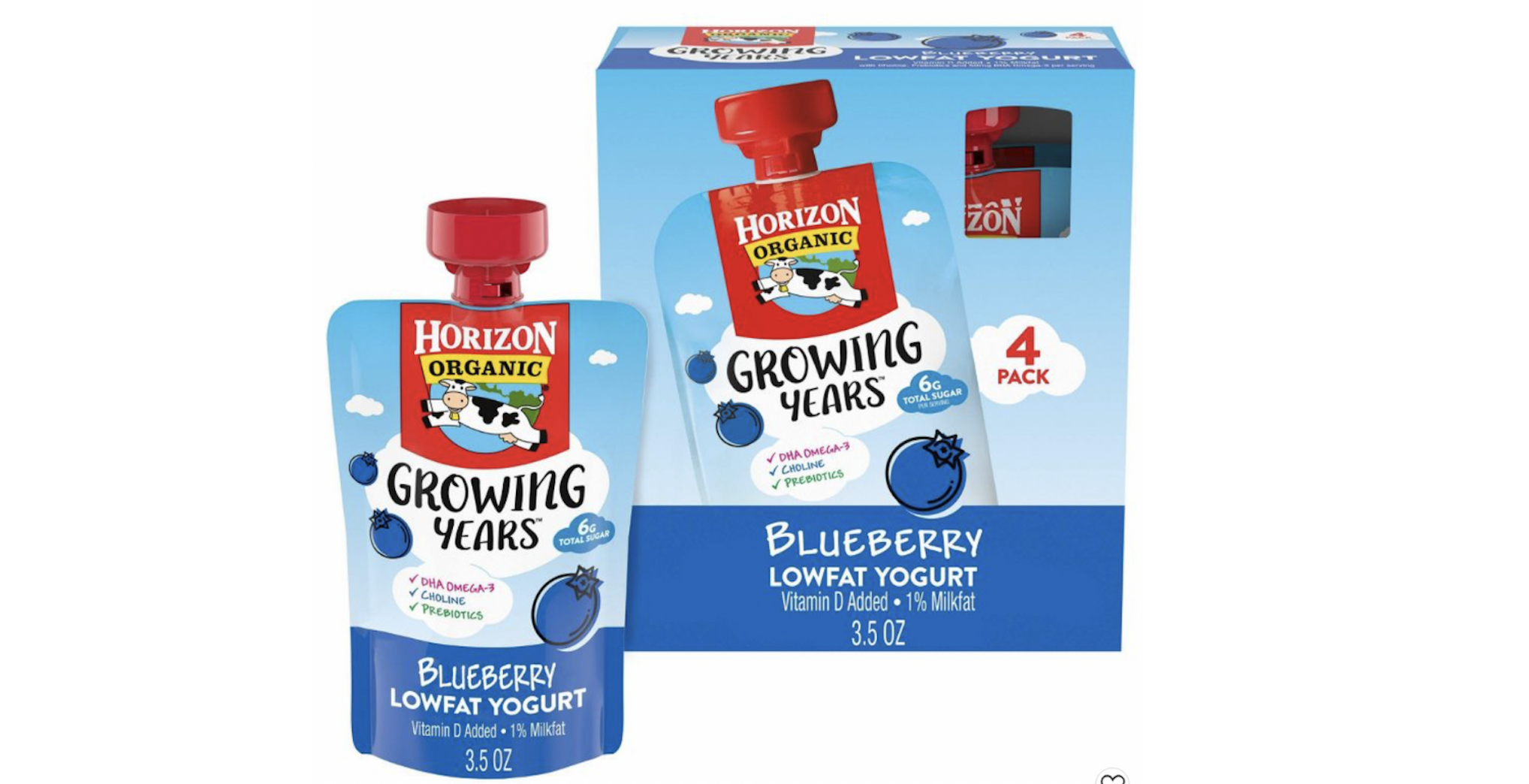
Pros
- Good protein-to-sugar ratio – 3g sugar and 3g protein
- Added vitamin D
- Live active cultures (probiotics!)
Cons
- Lower in calories – Might need to be paired with something else for a snack
- Not full fat
- Does not give kids practice for oral motor skills or using utensils

Gogo Squeeze Pouches
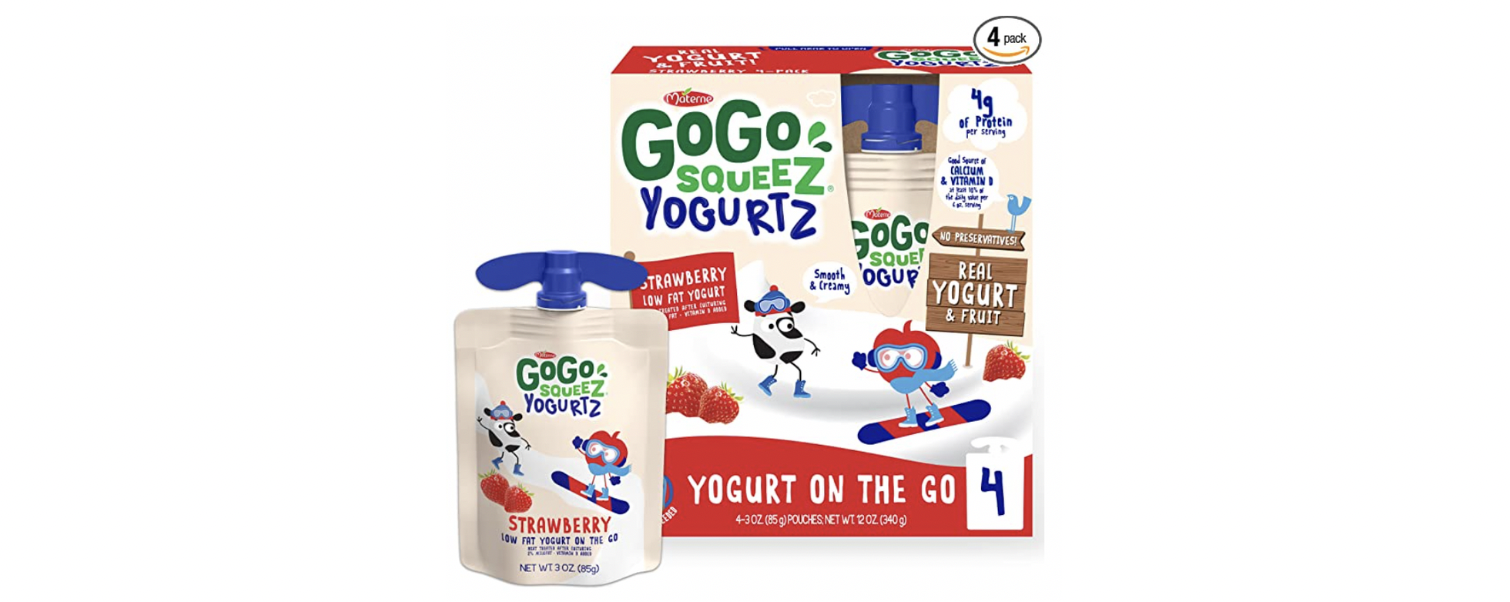
Pros
- Good source of vitamin D and calcium
- Simple ingredients
Cons
- Low fat
- Lower in calories – Might need to be paired with something else for a snack
- Poor protein-to-sugar ratio than many other brands – 8g sugar and 4g protein
- No live culture probiotics
- Does not give kids practice for oral motor skills or using utensils
Danimals
 Pros
Pros
- Variety of flavors
- Good source of vitamin D and calcium
Cons
- Low fat
- Lower in calories – Might need to be paired with something else for a snack
- No live culture probiotics
- Poor protein-to-sugar ratio – 7g sugar and 2g protein
This post may contain affiliate links, meaning I will receive a commission if you deicide to make a purchase through my links, at no cost to you. For more information, please read my Terms of Use and Service.

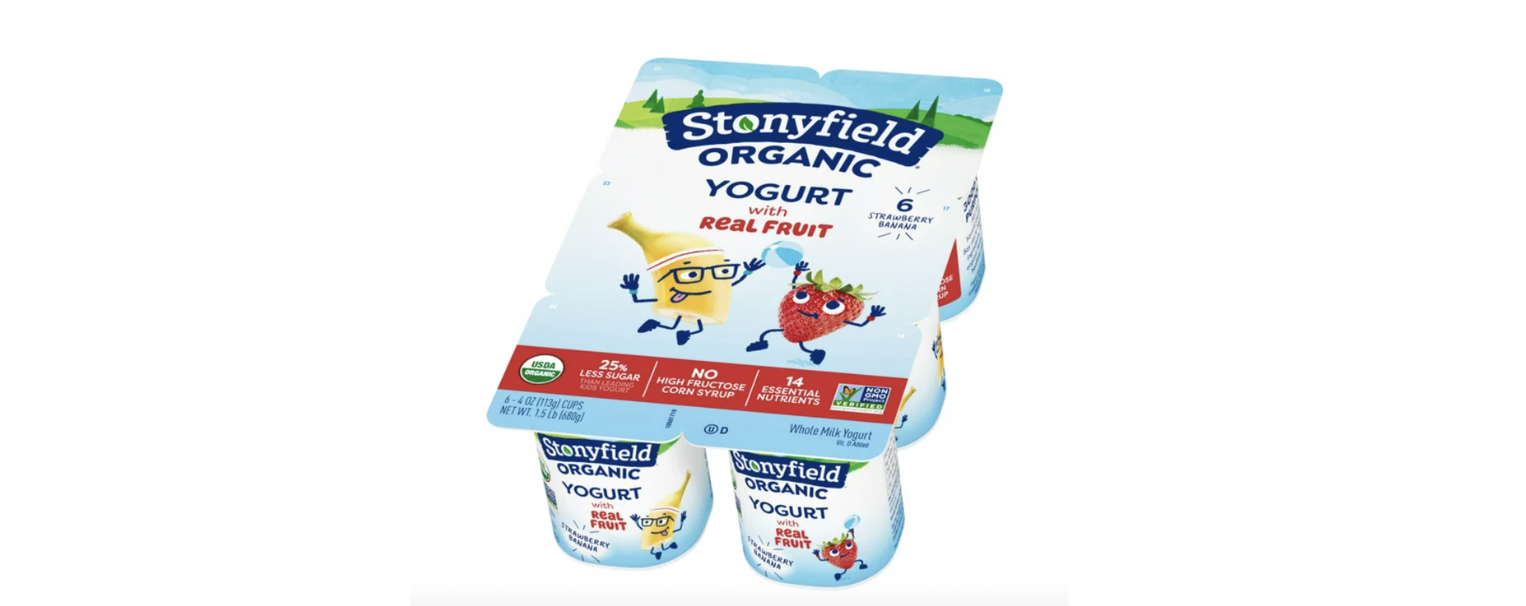
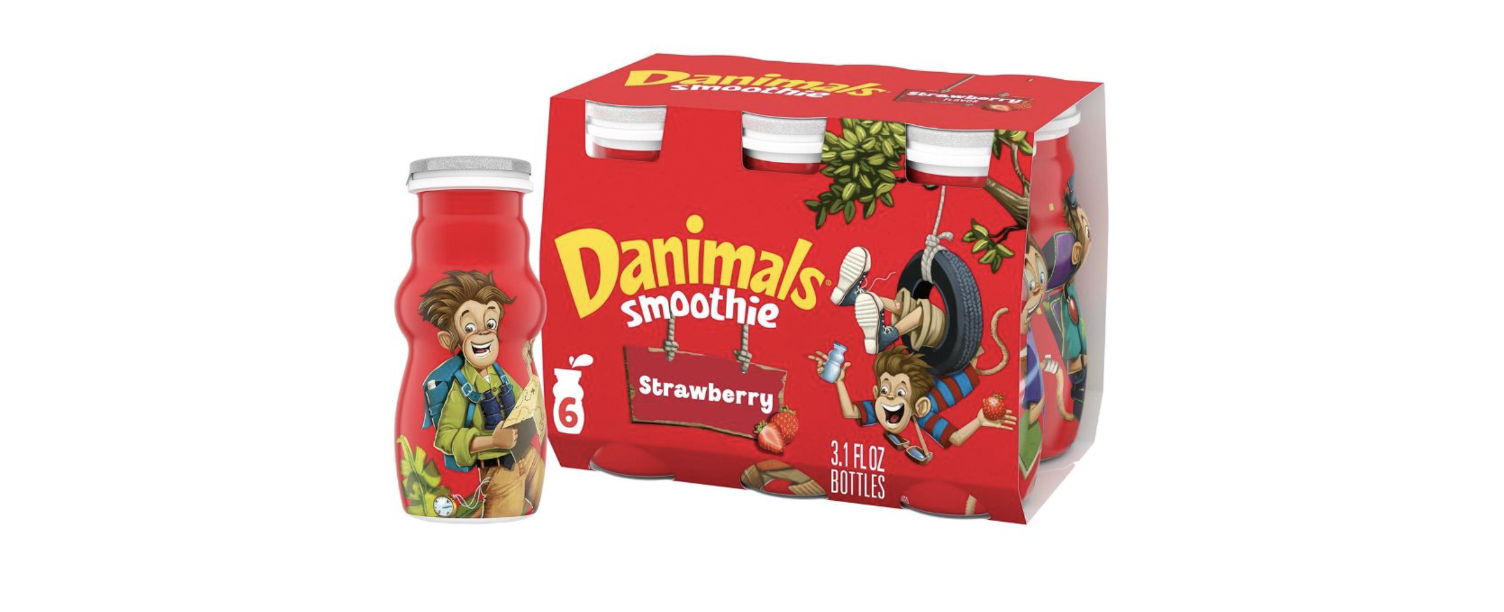
Pingback: Most Common Nutrient Deficiencies in Children
Pingback: 20 High Protein Foods for Picky Eaters
Pingback: Best Probiotic Yogurt For Kids [Kourella’s Brand Review]